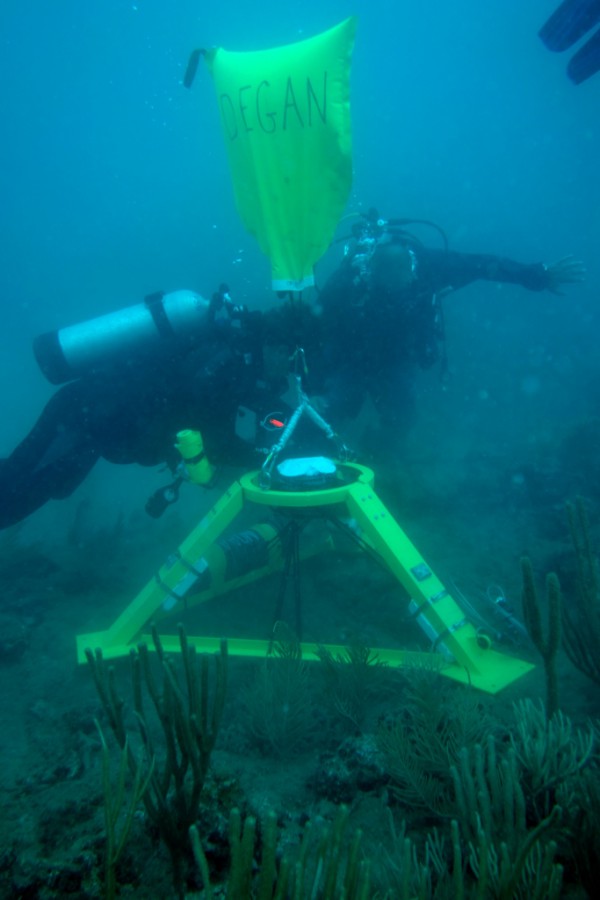Researchers have deployed five oceanographic moorings on the coastal shelf off of Guayanilla, Puerto Rico, equipped with high-precision instrumentation to measure currents and waves. The data collected by the instruments will be used to fine tune models that are used to forecast coral reef recovery after large-scale disturbances, such as vessel groundings and hurricanes. Previous work by this team from NCCOS, NOAA’s Restoration Center, and Duke University has shown that waves and currents affect the survival of newly settled juvenile corals after disturbances.

Vessel groundings and hurricanes cause extensive physical destruction to coral reefs, and subsequent recovery can be prolonged and complicated. Recovery predictions are used to develop damage assessments needed for related legal cases.
The team will retrieve the equipment in late July and use the data to validate wave energy models and update coral growth models to produce more precise recovery horizons following disturbance events that result in reef injury.
For more information contact Shay.Viehman@noaa.gov.
